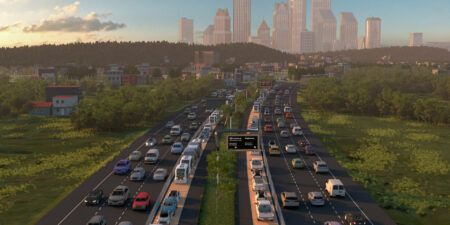The UK’s Transport Research Laboratory (TRL) is absorbing Transport and Travel Research (TTR) into the overall company, in order to further strengthen its sustainable mobility capabilities to meet growing demand from businesses, governments and local authorities seeking evidence-based, innovative solutions for their transport needs.
Previously a wholly-owned subsidiary of TRL, TTR is being fully integrated into the main company. The transition, which will take effect from October 2016, more than doubles the scale of TRL’s team of sustainability experts, creating a deeper, enhanced capability within the company.
TTR conducts independent policy research into sustainable transport across modes covering movement of people and goods and the impact on efficiency, economy and sustainability. Its capabilities include unrivalled expertise in European sustainable mobility research and demonstration projects, with transport specialists that lead the field in urban freight management.
Improved sustainable mobility is increasingly an integral part of transport policy for businesses and government, in the UK and internationally. The enhanced capabilities offered by the TTR integration provide research, consultancy and technology solutions for the development, introduction, use and evaluation of low emission and sustainable transport options for the movement of people and goods. Core areas of expertise include sustainable transport, low carbon vehicles, air quality, low emission strategies, freight policy and efficiency, and active travel.
Both TRL and TTR have strong track records of working with local authorities and with national and international governments to encourage the implementation and adoption of sustainable transport.
Examples of some high profile projects include: ZeEUS, a trial on behalf of the European Commission, of wirelessly charged electric buses in 12 cities across the EU, including London, UK; Transport for London’s Safer Cycling trials, which looked at a range of different options to improve safety for cyclists; the feasibility of introducing an Ultra-Low Emission Zone in Abu Dhabi, UAE; a Platooning Feasibility Study for UK highways on behalf of the Department for Transport; and the ECO Stars fleet recognition scheme, which delivers benefits to the funding local authorities, as well as the participating industry operators.
“Governments and businesses are under increasing pressure to reduce harmful emissions, improve air quality, and encourage more sustainable methods of travel,” explained Rob Wallis, chief executive of TRL.
“This challenge is a critical part of our investment priorities, ensuring we retain and strengthen our leading role in helping organizations to create a global transport system that is safe, clean, affordable, liveable and efficient. Both TRL and TTR customers will benefit from this enhanced and integrated capability, bringing together world-renowned specialists from all transport areas to solve the most complex sustainability challenges.”
Former director of TTR Chris Douglas, who will adopt the position of head of freight and fleet at TRL, said, “There is a long history of collaboration between TRL and TTR, initially as strategic partners, then through acquisition. We are now taking this one step further with full integration, combining our knowledge and expertise into one unified offering to deliver a more substantial, resilient and scalable service for our customers.”




